News
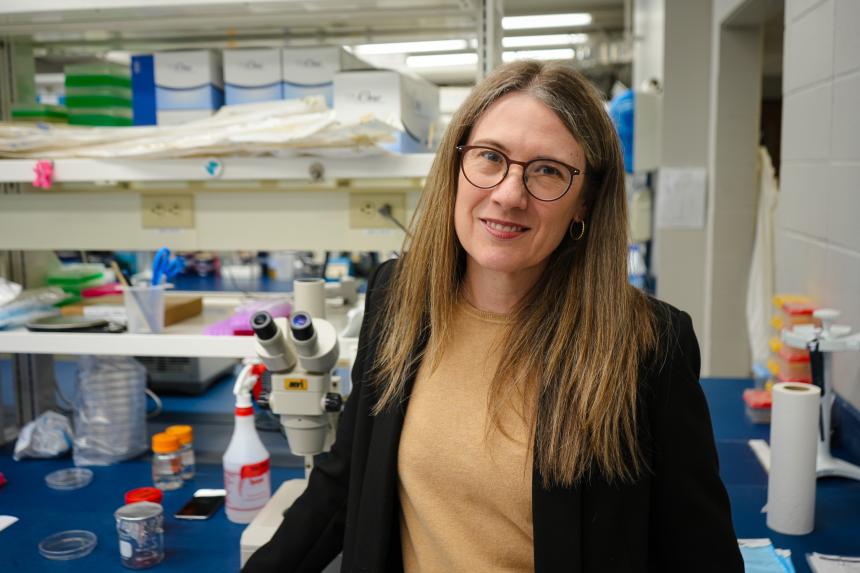
June 25, 2025
Equine researcher Dr. Mandi de Mestre is director of Cornell Equine and the Baker Institute of Animal Health — and our latest guest on the Cornell Veterinary Podcast. She joins show host Michelle Moyal, D.V.M.’ 07 to share her career journey, what excites her about leading two major initiatives at the college, and a secret culinary talent.

June 25, 2025
A recent study has identified key proteins in equine joint fluid that could improve the early diagnosis and treatment of osteoarthritis (OA) in equines.
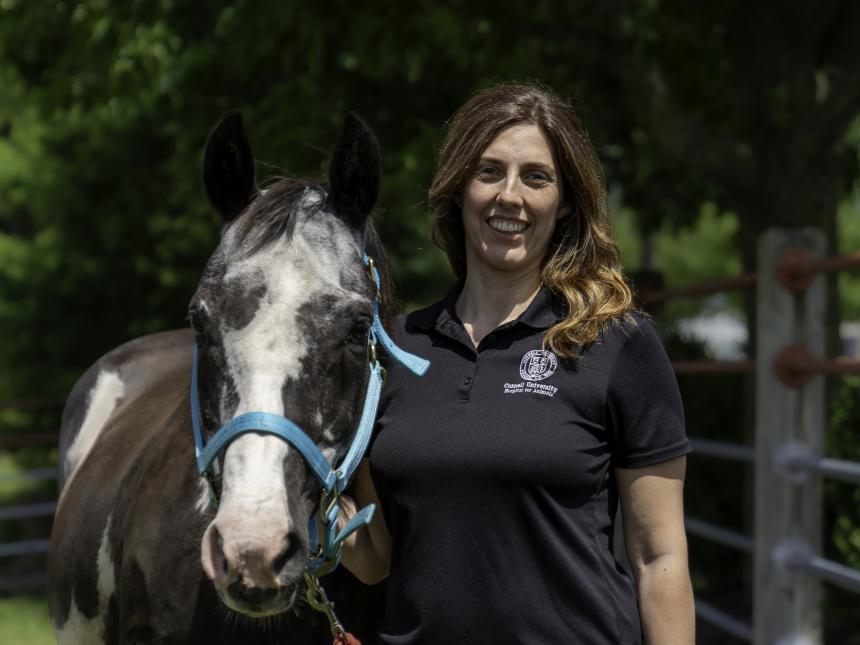
June 25, 2025
A groundbreaking approach to equine intestinal motility takes center stage as Drs. Barbara Delvescovo and Marta Cercone join us to discuss their pioneering research on ultrasound-guided celiac plexus blocks in horses.

June 25, 2025
Lexington, Kentucky, is the pinnacle of the Thoroughbred world. A place where equine enthusiasts breed, raise, sell and race horses — and demand outstanding veterinary care. Cornell University College of Veterinary Medicine (CVM) alumni are there to meet that need. Many CVM-trained veterinarians hold influential roles in Lexington’s equine industry and are shaping the standard of care in the region.
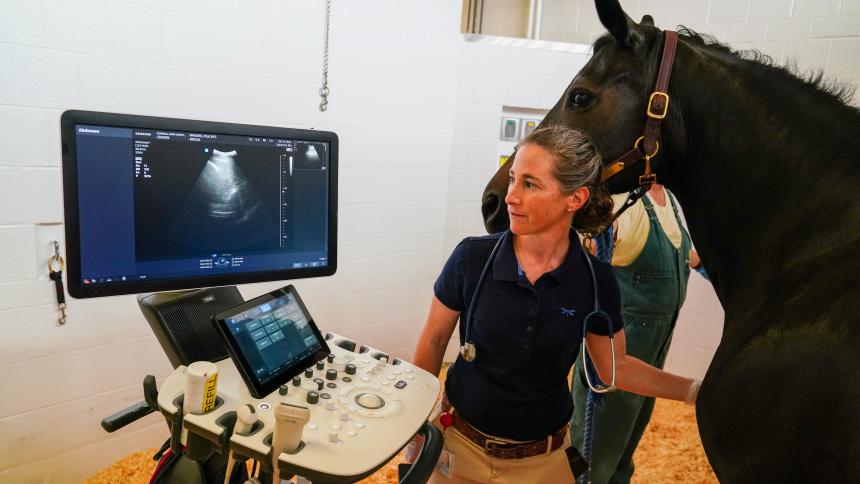
June 25, 2025
A key strategy for reducing antibiotic use in equine practice is to limit prophylactic administration and only treat horses with evidence of infection. “Every time we prescribe an antibiotic, we are creating a potential risk of resistance, both the pathogen causing the disease and the natural flora of the patient,” said Pamela Velarde, DVM, a resident in large animal medicine at Cornell University College of Veterinary Medicine’s Department of Clinical Sciences.
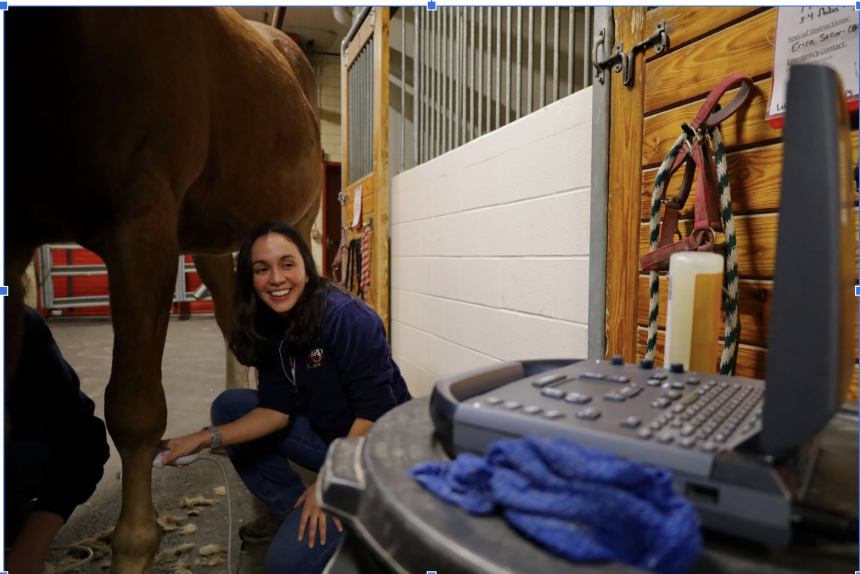
March 20, 2025
At Cornell Equine, we are proud to highlight the journeys of students who are shaping the future of equine medicine. Lucia Younger, a dedicated veterinary student, has been deeply involved in equine research, clinical practice, and mentorship throughout her academic career at Cornell.
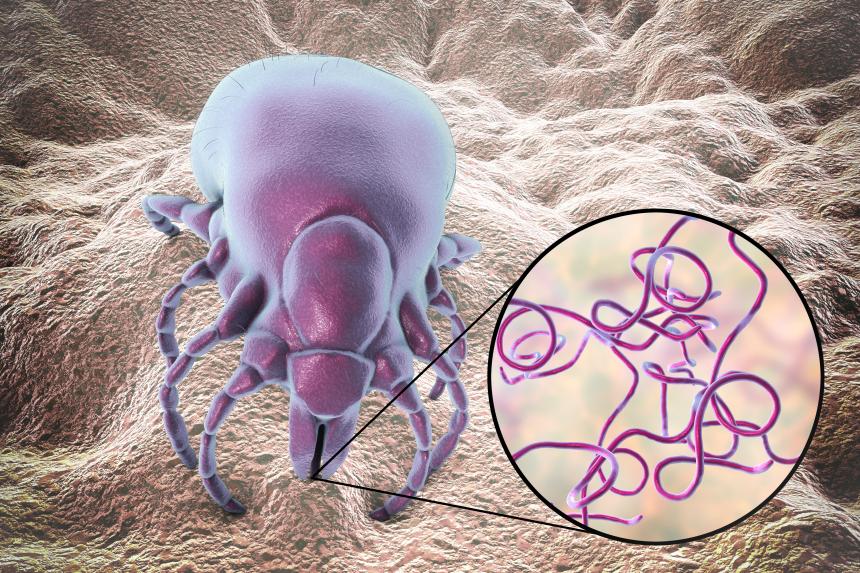
March 11, 2025
Cornell Equine is proud to share research news on Borrelia burgdorferi and nuchal bursitis in horses, recently featured at the 2024 AAEP Kester News Hour. This annual session at the American Association of Equine Practitioners (AAEP) Convention highlights the most notable equine research of the year, underscoring its impact on veterinary practice.
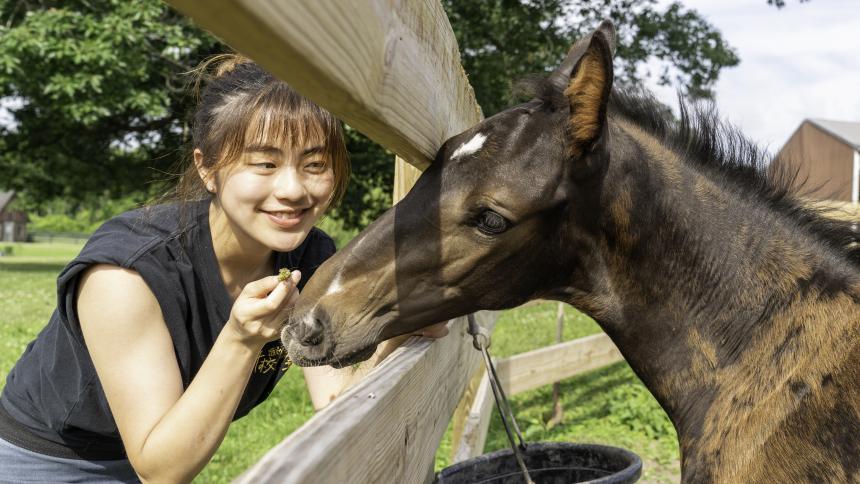
March 10, 2025
A new Cornell initiative aims to make a positive impact on horses worldwide. Cornell Equine is a university-wide collaboration between equine researchers, educators, practitioners and athletes at the College of Veterinary Medicine (CVM), the College of Agriculture and Life Sciences (CALS) and Cornell University Athletics and was launched at the end of 2024.
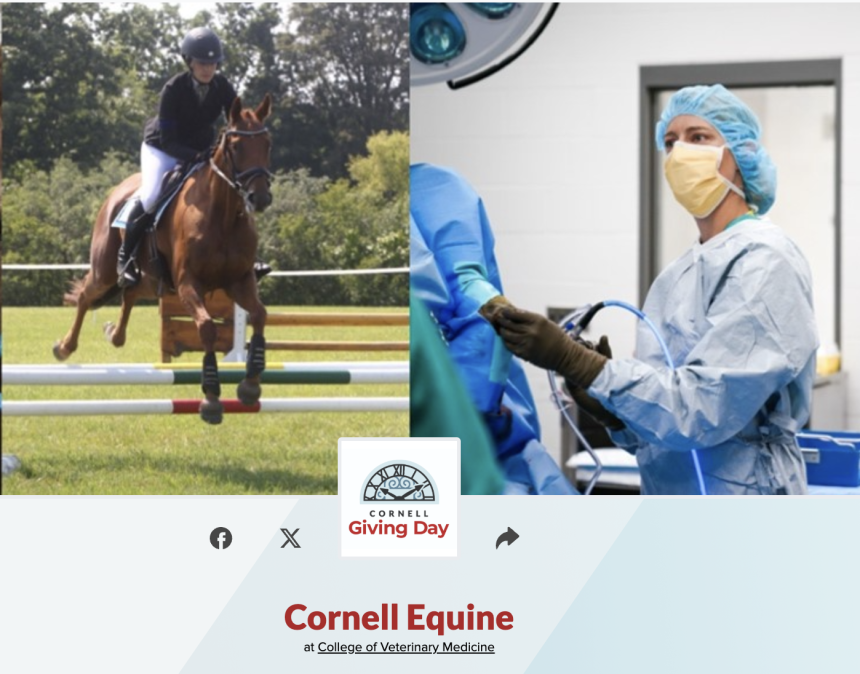
March 09, 2025
Thursday, March 13 is Cornell University’s Giving Day. This event encourages as many faculty, staff, students, alumni, and friends of Cornell as possible to make a gift in one 24-hour period. This year, the Cornell College of Veterinary Medicine is including the option to make a gift to support Cornell Equine, and we would like you to consider supporting this on Giving Day this year. To learn more and make a gift visit https://givingday.cornell.edu/campaigns/cornell-equine-health

March 09, 2025
The annual meeting of the American Association of Equine Practitioners, held last month in Orlando, Florida, featured key talks and recognitions from Cornell University College of Veterinary Medicine (CVM) faculty and students as well as Cornell-trained equine practitioners and researchers, exemplifying the impact of the CVM on the field of equine health.
